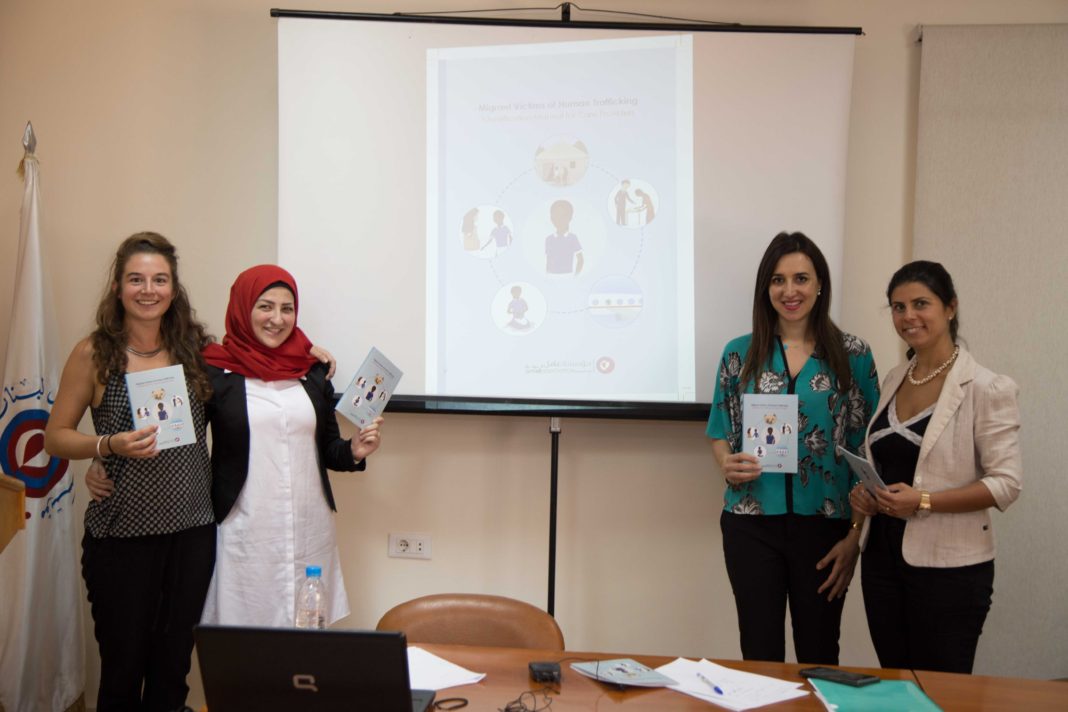As a result of persecution, conflict, violence, and human rights violations, the world is currently witnessing the highest levels of displaced people on record. According to UNHCR, 65.6 million people around the world have been forced from home -a total that counts both those living inside and outside of their home countries. This is the highest number recorded since the aftermath of World War II.
Despite its crises, Lebanon has always been a “haven” for migrants and refugees. In particular, 250,000 migrant domestic workers came to Lebanon from African and Asian countries in search of better economic opportunities, which led to the increasing number of victims of human trafficking in various forms.
The difficult conditions, domestic workers face in Lebanon and its complications necessitated the mobilization of civil society organizations response, including Amel, which led to the launching of the MDW project aiming to protect migrant domestic workers and victims of human trafficking in 2011. This program has become a core focus within the ten programs of Amel. It provides health care, social and psychological support, legal support, and livelihood training. Amel will keep fighting at the same time for a law that preserves the domestic worker’s rights based on a Fair exchange with employers – rights and duties, in cooperation with international and local partners.
in this framework, Amel launched a technical “Identification Manual for Care Providers” dedicated to health and social care providers within development centers in Lebanon, aiming at developing a scientific diagnostic mechanism for victims of human trafficking and providing them with suitable care, in cooperation with the United Nations International Organization for Migration (IOM), funded by European Union and the International Federation of Red Cross and Red Crescent federations IFRC.
The ceremony took place at Amel Headquarter – Amel house for Human Rights in Beirut, in the presence of Amel President Dr. Kamel Mohanna, the representative of the International Organization for Migration, Dima Haddad, representatives of civil associations, and interested parties and activists within this field.

Dr. Kamel Mohanna, focused his welcoming speech about Amel’s commitment to the support of migrant domestic workers and victims of human trafficking, based on Amel’s history of fighting for human rights and dignity, regardless of identity, affiliations or color, pointing out that Amel has been in operation for more than 38 years in all regions of Lebanon with all people, regardless of the circumstances, thus it became a model for human development work, in Lebanon and the Arab world.
He also explained about the Amel’s role in advocating the process of social change, aiming to build a state of social justice and victory for the just humanitarian causes, and eliminating all forms of racism that threaten human societies. “Here are five points to deal with the cause of migrant domestic workers: defending the rights of women migrant workers, eliminating violence, trafficking, and exploitation in parallel with protecting them, providing treatment for victims through social, legal and psychological specialists, ensuring their voluntary – safe return to the country”. Amel is also pushing to criminalize violations against women domestic workers in coordination with civil associations in Lebanon, and it has so far, contributed to submitting a draft law to achieve this.
Ms. Zeina Mohanna, Head of human rights program at Amel Association and coordinator of “The Protection of Migrant Domestic Workers and Victims of Human Trafficking”, spoke about the reasons behind the issuance of this Manual and its importance for the case. She thanked the efforts and contributions of the International Organization for Migration regarding the technical aspect of the manual preparation, especially after training 51 social worker and care providers from 14 development centers of Amel, to be specialists in the identifying and care of victims of human trafficking, in order to enable communities and municipalities to support victims.
Mohanna also highlighted the main missions of the Amel’s work in supporting this vulnerable group, most notably the adoption of multidisciplinary training and empowerment courses at the 24 working centers including health, social, psychological, legal and recreational activities, as well as advocacy and networking with activists for this cause, mentioning that Amel is focusing on the development of research to addresses this cause, in parallel with coordination with the countries of origin such as Ethiopia, Sri Lanka, Bangladesh and others As well as effective and important collaboration with the International Organization for Migration IOM.
An intervention by Ms. Dima Haddad, Director of the National Program for the Protection of Migrants and Combating Trafficking in the International Organization for Migration in Lebanon, highlighted the importance of creating and training specialists in human trafficking identification and care in local NGOs centers aiming to protect and empower theses victims. Crimes, rise in the case of crises and wars where traffickers benefit from the fragility of social and legal infrastructure, thus the identification and characterization of the crime of trafficking is a very important part of the struggle to support this humanitarian cause to end the crimes of trafficking, Haddad pointed.
The Manual includes information and techniques that benefit not only migrants and workers with victims of human trafficking but also helps in the situation of refugees who are exposed to this violence, especially that the international laws against the criminals of trafficking and the identification of it still not quite clear and not decisively enough.





 Creative Commons Attribution 4.0 International license
Creative Commons Attribution 4.0 International license